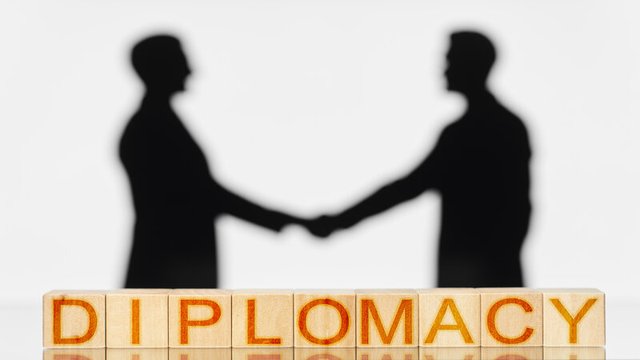
What is modern diplomacy?
Jan. 30, 2025

Diplomacy has always been a cornerstone of international relations, evolving to meet the demands of an ever-changing global landscape. Today, modern diplomacy reflects the complexities of globalisation, technology, and cultural diversity.
For those considering a career in international relations, understanding the distinction between modern diplomacy and traditional diplomacy is essential. This blog explores these concepts and highlights how Universidad Europea can provide a pathway to success in this dynamic field by studying a programme such as a Global Bachelor’s Degree in International Relations in Valencia or a Degree in International Relations in Madrid.
Definition of modern diplomacy
Modern diplomacy refers to the practices and strategies used by states and international actors to navigate the multifaceted challenges of today's interconnected world.
Unlike traditional diplomacy, which focused primarily on state-to-state interactions and formal negotiations, modern diplomacy encompasses a broader spectrum of activities. It involves collaboration between governments, international organisations, non-governmental organisations (NGOs), multinational corporations, and civil society.
Key features of modern diplomacy include:
- Multilateral Engagement: Modern diplomacy often involves working within multilateral frameworks, such as the United Nations or regional organisations, to address issues like climate change, security, and human rights.
- Public Diplomacy: The rise of technology and social media has transformed the way nations communicate with foreign publics. Public diplomacy focuses on building relationships and influencing perceptions through transparency and cultural exchange.
- Economic Diplomacy: Global trade and economic policies are increasingly central to diplomatic agendas. Economic diplomacy promotes sustainable development, investment, and cooperation.
- Crisis Management: Modern diplomats must address urgent global challenges, including pandemics, conflicts, and natural disasters, requiring swift, innovative solutions.
Comparing modern diplomacy and traditional diplomacy
While traditional diplomacy laid the foundation for international relations, its focus on state sovereignty and formal negotiations often excluded non-state actors. Modern diplomacy, by contrast, thrives on inclusivity and adaptability.
Traditional Diplomacy:
- Bilateral negotiations.
- Limited to state representatives.
- Emphasis on secrecy and confidentiality.
- Structured protocols and hierarchy.
Modern Diplomacy:
- Multilateral negotiations and broader partnerships.
- Engagement with NGOs, corporations, and citizens.
- Transparent and interactive approaches.
- Focus on digital communication and rapid decision-making.
Both approaches are integral to understanding the evolution of international relations. Traditional diplomacy provides the historical and procedural context, while modern diplomacy reflects the realities of our interconnected era.
Why study international relations?
Studying international relations opens doors to a wide range of career opportunities in diplomacy – such as becoming a diplomat, public policy, international law, global business, and humanitarian work. As the world becomes increasingly interdependent, the demand for professionals who understand the nuances of modern diplomacy continues to grow.
A degree or master’s in international relations equips students with:
- Analytical and critical thinking skills.
- Deep knowledge of global politics, economics, and history.
- Proficiency in cross-cultural communication.
- Practical expertise in negotiation, mediation, and conflict resolution.
Launch your career with Universidad Europea
For aspiring diplomats and international relations professionals, Universidad Europea offers a unique educational experience. The university’s programmes are designed to combine academic excellence with real-world applicability, ensuring that students are prepared to tackle modern diplomatic challenges.
- Comprehensive Curriculum: The Master’s in International Relations at Universidad Europea includes modules on global governance, international law, and public diplomacy, providing a thorough understanding of both modern diplomacy and traditional diplomacy.
- International Perspective: With a diverse student body and faculty, Universidad Europea fosters a multicultural learning environment that reflects the realities of global diplomacy.
- Hands-On Experience: Through internships, study-abroad opportunities, and simulation exercises, students gain practical insights and build valuable professional networks.